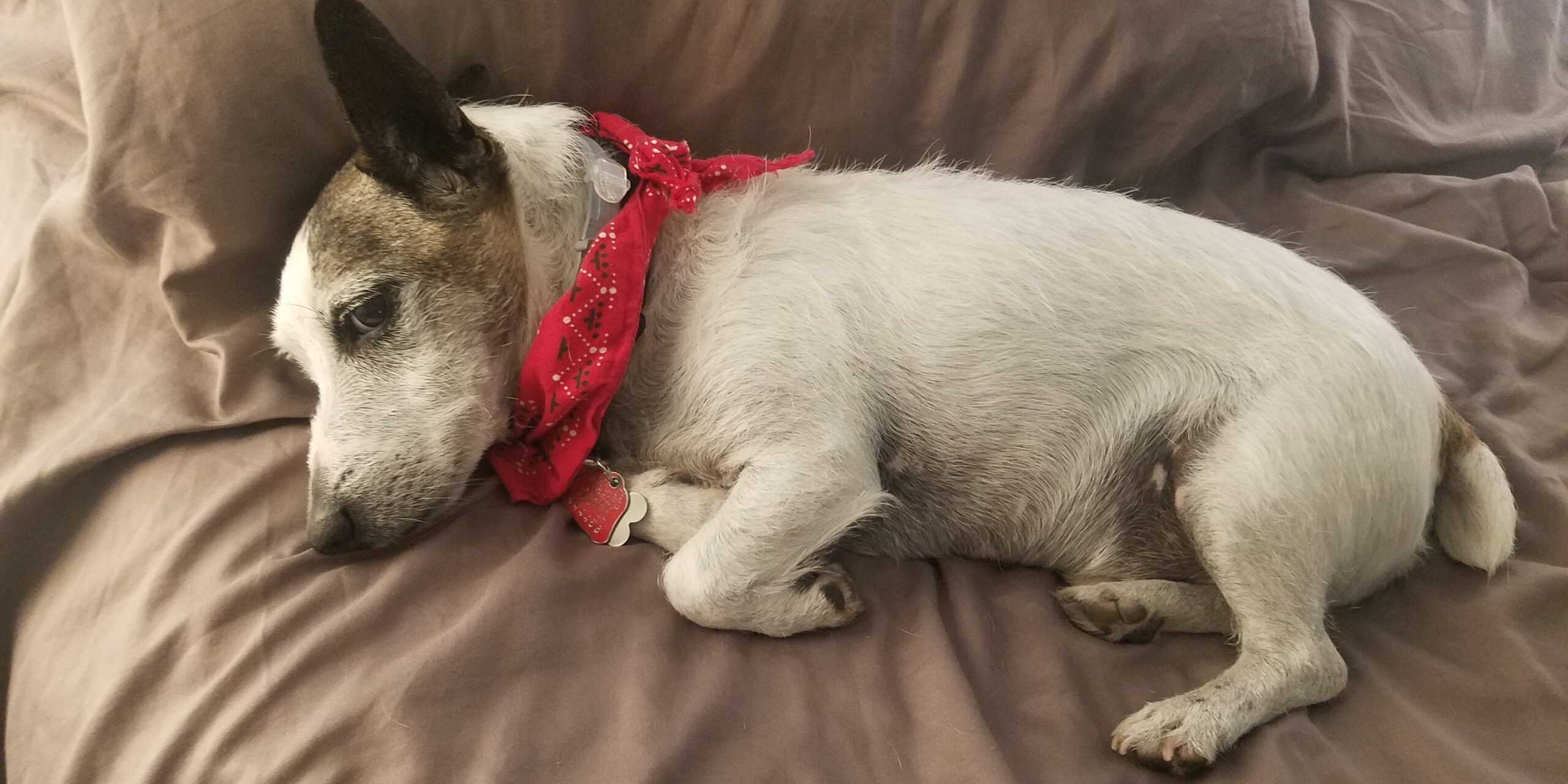I’m a devoted pet owner and recently discovered that one of my rescue dogs went blind over a period of three months. Here’s what I learned from that experience; I call these “life lessons” about coping with change and hardship:
- At first, he was confused and difficult because he didn’t understand what was happening.
It took us a while to understand that our Jack Russell was going blind because we’d never experienced it before. He suddenly became difficult when we took him for walks and even refused to go out. He spent less and less time running around the backyard, chasing squirrels. We thought he might be hurt, though he didn’t limp or show signs of pain. But because he slowed down from his usual high-energy routine, he got less exercise and started to gain weight.
This happens with people, too. When confronted with new obstacles and problems, people often have difficulty understanding how to deal with them. Or, they might not even admit to themselves that issues are affecting how they feel, think, or act. Thinking about chronic pain or illness, for example, people start out resentful and frustrated, just trying to figure out what’s wrong, what doctor to see, what diagnosis is correct, etc.
Life Lesson: when things start to go wrong – or it “gets hard” to do what you used to do – it’s ok to be confused, maybe resentful, and frustrated. It’s normal. Life is a process and change from what we’re used to isn’t easy. If you know someone going through this, be patient as they struggle to figure it out.
2) He got sad and depressed.
It’s hard to lose what you have and vision for people and dogs is huge. We use a lot of our energy, as humans, processing what we see, moment to moment.
My vet told me that dogs learn how to cope with a loss of vision by using their other senses, including hearing and smell. However, knowing this was hard, as I watched my dog remain sad and depressed. I wanted to reassure him the everything was going to be ok.
This happens with people, too. As his “parents,” we did what we could to cheer him up and work through his transition. We got more carpeting around the house so that the floor would be softer and more forgiving. And we gave him bones to chew on – to preoccupy him and keep him busy.
Life Lesson: life changes are hard and can be depressing. In those moments, it’s important to do what you can to help, be considerate, and to offer acts of kindness.
3) I realized I had no idea what was going on until afterwards.
It’s a hackneyed phrase, “Hindsight is 20/20,” but that’s because it’s true. As my dog went through the process of losing his sight, he didn’t know what was happening and neither did I. All I saw were the outward signs, which didn’t make any sense to me, and all I could do was muddle through it with him until the problem revealed itself – eventually.
This happens with people, too. Is there someone you know well – or you think you know well – who isn’t acting normally? Maybe they’re a bit on-edge, or sensitive, or emotional? Something may not “feel” right, but you can’t put your finger on it?
You have no idea what’s going on in someone else’s world unless they share it with you, so there are times when a person’s behavior doesn’t seem right. Perhaps, later, it’s revealed to you. It was family issues or health problems, for example. The bottom line is this: you can’t always know what’s affecting someone else’s behavior.
Life Lesson: you don’t know what someone else is going through, so give them the benefit of the doubt. Maybe they’re not ready (or willing) to share with you. Or the world. Or maybe they haven’t even sorted it out yet. In either case, consider that there’s more than you know going on in their lives.
Dogs may not be people, but they teach me a lot. And I’m willing to learn, even if the lessons aren’t easy. Please feel free to share if there’s someone you think might benefit from this, too.






